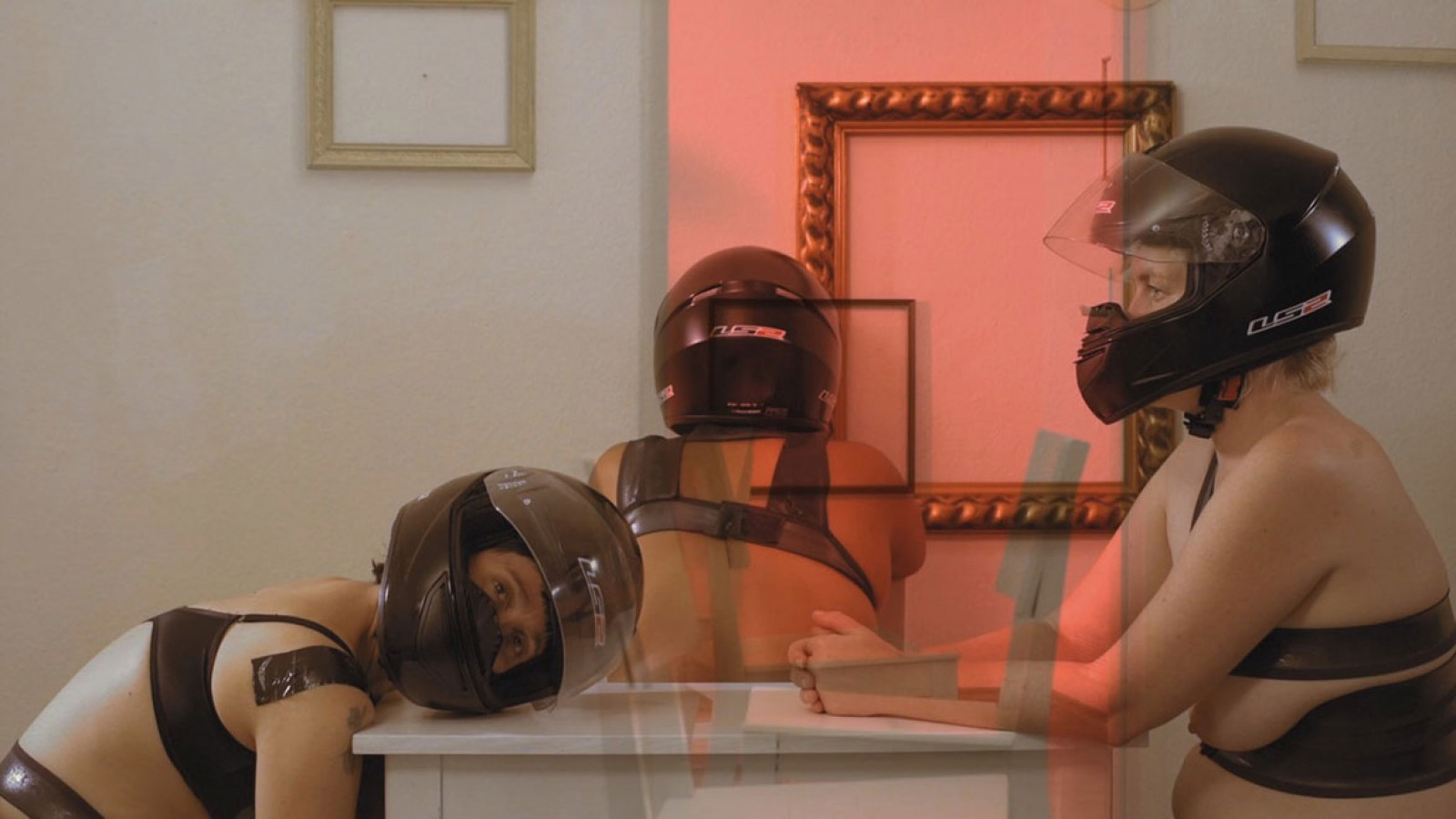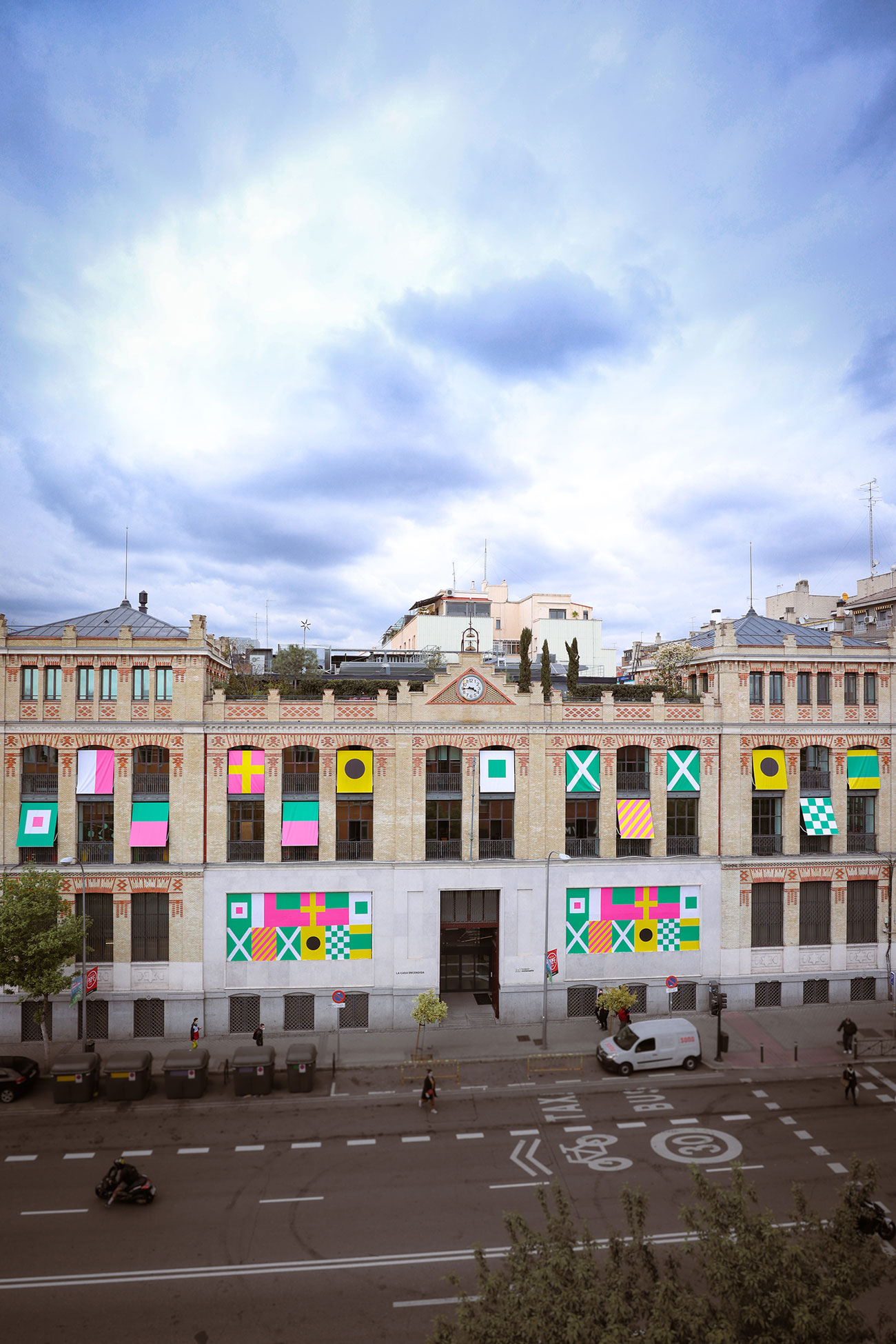Structured in four programmes, the audiovisual cycle reflects on the thought-producing potential of matter. In this age of biotechnology, technoscience, exoskeletons and artificial intelligence, how can we rethink the human being, and the female body in particular?
| Duration: | 2 hours |
“We are all chimeras, theorized and fabricated hybrids of machine and organism; in short, we are cyborgs,” Donna Haraway said. Today, the synthesis of human and machine is technically possible, opening up new prospects for other material, social and political constructions. The body-camera hybrid, the body inscribed in alienating work processes, bodies in cyberspace, virtual bodies, technologically enhanced bodies, the visualisation of medico-technical images, bodies and intellectual and cultural devices.
-
Sanctus, directed by Barbara Hammer. USA, 1990. 19’ (screened in 16 mm)
Hammer uses moving X-ray images, mostly of women, made by Dr James Sibley Watson in the 1950s, turning them into a spectacle through medico-technical manipulation. The artist retrieves and glorifies these bodies, restoring their sensual presence. -
Rigged, directed by Kate Cooper. UK, 2014. 5’
Cooper explores the computer-generated image of women in the shiny aesthetic of hypercapitalism. Delicate portraits of female models, in this case pensively jogging. Next-generation human beings, completely fabricated and surrounded by the fascination of virtual simulation. -
Der Sadist schlägt das eindeutig Unschuldige, [The Sadist Beats the Unquestionably Innocent], directed by Margaret Raspé. Federal Republic of Germany, 1971. 6’
Raspé shot her films in the 1970s with a camera-helmet, which allowed her to paint, act and film at the same time—a technical and medial extension of the body. This film focuses on domestic chores: how cream becomes butter when churned with an electric mixer. -
Ingenio (Ángeles), directed by Marina Núñez. Spain, 2010. 9’
A mechanical device, on which insubstantial mutant heads are placed, keeps a woman’s head pinned to the ground. Perhaps the heads are the woman’s doubles: imaginary chimeras from her unconscious, or real (but unsuccessful) scientific experiments. -
The Third Body, directed by Peggy Ahwesh. USA, 2007. 9’
Adam and Eve arrive in an exotic Eden and images of paradise are interspersed with virtual reality demonstrations. Cyberspace joins the genesis of a third possibility, a virtual existence that defies natural and social definitions of gender and morality. -
Rigged (Reprise), directed by Kate Cooper. UK, 2014. 2’
Another variation on Cooper’s work, where the model shows her shiny new dental braces. The artist is critical of virtual images, especially those depicting women, in which there is a clear connection to desire and violence. -
No Beach Just Sand, directed by Sabine Marte. Austria, 2017. 14’
The deconstruction of the female body through physical, spatial and cinematographic manipulations is interwoven with a reflection on exhausted bodies, work and the loss of utopia in neoliberal states.
Total runtime: 78’
The screening will be followed by a talk with Beatriz Ortega Botas and María Morata
Beatriz Ortega Botas is a curator and lecturer in art theory and history at IED. She is co-curator of Yaby, an independent art venue in Madrid, and co-editor of the online magazine _AH.

